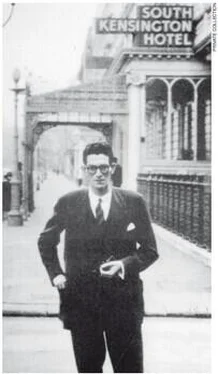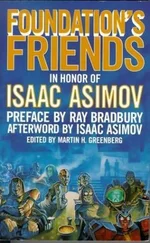Ben Macintyre - A Spy Among Friends
Здесь есть возможность читать онлайн «Ben Macintyre - A Spy Among Friends» весь текст электронной книги совершенно бесплатно (целиком полную версию без сокращений). В некоторых случаях можно слушать аудио, скачать через торрент в формате fb2 и присутствует краткое содержание. Год выпуска: 2014, ISBN: 2014, Издательство: Bloomsbury Publishing, Жанр: Старинная литература, на английском языке. Описание произведения, (предисловие) а так же отзывы посетителей доступны на портале библиотеки ЛибКат.
- Название:A Spy Among Friends
- Автор:
- Издательство:Bloomsbury Publishing
- Жанр:
- Год:2014
- ISBN:9781408851746
- Рейтинг книги:5 / 5. Голосов: 1
-
Избранное:Добавить в избранное
- Отзывы:
-
Ваша оценка:
- 100
- 1
- 2
- 3
- 4
- 5
A Spy Among Friends: краткое содержание, описание и аннотация
Предлагаем к чтению аннотацию, описание, краткое содержание или предисловие (зависит от того, что написал сам автор книги «A Spy Among Friends»). Если вы не нашли необходимую информацию о книге — напишите в комментариях, мы постараемся отыскать её.
A Spy Among Friends — читать онлайн бесплатно полную книгу (весь текст) целиком
Ниже представлен текст книги, разбитый по страницам. Система сохранения места последней прочитанной страницы, позволяет с удобством читать онлайн бесплатно книгу «A Spy Among Friends», без необходимости каждый раз заново искать на чём Вы остановились. Поставьте закладку, и сможете в любой момент перейти на страницу, на которой закончили чтение.
Интервал:
Закладка:
*
The work of Section V, battling German espionage around the world, was fascinating, complicated, and frequently frustrating. ‘For every lead that produced results,’ wrote Philby, ‘a dozen lured us tortuously into dead ends.’ Elliott found the ‘monstrous’ volume of paperwork – an essential part of intelligence – particularly tedious, and tried to emulate Philby’s brisk memo-writing style, ‘a model of economy and lucidity’. The officers of Section V might complain about the hours, but they formed a tight-knit group, with their own bonding rituals and routine: Sunday lunch at the Philbys’, cricket at weekends, drinks at the King Harry, a club dinner in London from time to time, and occasional weekends at Eton. ‘I had the advantage of being able to invite these friends to spend a night from time to time with my parents, who were fortunate enough to have some old retainers to help cope with a very large house,’ wrote Elliott.
Philby seemed to be working twice as hard as anyone else, which was unsurprising, since he was working for two masters or, more precisely, appearing to serve one, for the benefit of the other. As Philby’s influence on British intelligence grew, so did his importance to the Soviets. Moscow Centre sent a message to its London rezident , describing Sonny as ‘an interesting and promising agent’ and ordering that he be put to greater use. Philby responded with devoted diligence. On night duty in Broadway, he combed incoming telegrams for anything of interest to the NKVD; messages between London and the military mission in Moscow were ‘especially valuable’. He described everyone in Section V with waspish precision. Elliott was not the only colleague who would have been shocked to discover Philby’s secret opinion: his boss Felix Cowgill had ‘few social graces’; his school friend Tim Milne was ‘inclined towards inertia’; Trevor Wilson, the former skunk-dung collector, had a ‘weakness [for] women’, and young Desmond Bristow was ‘the weak link . . . owing to immaturity and inferior brain’.
Every evening, Philby took home a ‘fat briefcase’, and sat in his study laboriously copying out files, while Aileen cooked dinner and looked after the children. He even reported on Aileen, like some commissar assessing the ideological weakness of his nearest kin: ‘Her political views are Socialistic, but like the majority of the wealthy middle class, she has an almost ineradicable tendency towards a definite form of philistinism (petite bourgeoisie) namely: she believes in upbringing, the British navy, personal freedom, democracy, the constitutional system, honour etc . . . I am certain that I can cure her of these confusions, although of course I haven’t yet attempted to do so; I hope that the revolutionary situation will give her the necessary shake-up and cause a correct revolutionary response.’ Marriage, family, friendships: all were subservient to the demands of revolutionary orthodoxy.
Philby did whatever his Soviet controllers asked, although he found it ‘difficult, exhausting and often very ordinary, even boring work that required enormous patience, will power and control’. It was also nerve-racking. Philby suffered ‘twinges of panic’, his controller reported, which was hardly surprising, since he was playing an astonishingly precarious game. If just one Soviet intelligence officer switched sides and identified him to the British secret service, he was doomed. One had very nearly done so.
In 1937, a Soviet intelligence officer named Walter Krivitsky had defected to the West, bringing with him a dowry of top-level intelligence, including the identities of no fewer than seventy Soviet intelligence personnel working abroad. Krivitsky’s defection had led to the arrest and trial of John King, Elliott’s former coding instructor. But much of his information was contradictory and fragmentary. In 1940 he was debriefed by the MI5 officer Jane Archer, in St Ermin’s Hotel, where Philby had been recruited to MI6. The interview did not start well when Krivitsky (alias ‘Mr Thomas’) was offered a saccharin tablet for his tea (sugar was rationed). He immediately assumed this was a poisoned pill and that he was being murdered by the British secret service, albeit rather obviously, and very politely. Once that moment of social embarrassment had passed, Krivitsky opened up and revealed an important new nugget of information: during the Spanish Civil War, Soviet intelligence had sent an agent to kill General Franco. Krivitsky could not provide a name, or any other specifics, but described the would-be assassin as ‘a young Englishman, a journalist of good family, an idealist and fanatical anti-Nazi’. MI5 launched an investigation, but there had been several well-born journalists in Spain in the 1930s, and the inquiry fizzled out. No one thought to connect the tip with Philby. The clue would rattle around British intelligence for years, before assuming vast significance many years later.
Philby was slaving for the Soviet cause, risking his life and prepared to report on whatever interested Moscow, including his father, his wife and his best friend. Yet Moscow was not happy. The Cambridge spies – Guy Burgess in MI6, Donald Maclean in the Foreign Office, Anthony Blunt in MI5, John Cairncross in Bletchley Park and Kim Philby in Section V – were producing top-level intelligence. But their very productivity posed a conundrum. In the insanely distrustful world of Soviet espionage, the quality, quantity and consistency of this information rendered it suspect. A misgiving began to take root in Moscow that British intelligence must be mounting an elaborate, multi-layered deception through Philby and his friends; they must all be double agents. Moreover, Philby’s story failed to meet firmly held Soviet preconceptions: MI6 was supposed to be impregnable, yet Philby had practically sauntered into the organisation; he had been a left-winger at university, yet supposedly rigorous background checks had failed to pick this up; he had been asked to find evidence that his own father was a spy, and had failed to do so.
Was Philby a plant? Was he shielding his father? Was he, too, an enemy of the people, masquerading as a friend? To find out, a test was set. The information provided by Philby was all very well, but what interested Moscow most was the identity of British spies within the Soviet Union; who had MI6 recruited in the USSR, what were their names, and what Soviet secrets had they revealed? If Philby exposed these spies, then he was reliable and loyal; but if not, then Moscow would draw its own conclusions. Philby politely pointed out that his role in MI6 was catching enemy spies, not agent-running, which was the responsibility of a different section, in a completely different place. But Moscow was adamant: ‘We told him he must use whatever plausible and reasonable pretexts in order to get these files.’ As his former controller Theodore Maly had discovered to his cost, in the warped logic of Stalinism, refusing to do something just because it was impossible was a sign of disloyalty. Philby obediently set to work.
The Central Registry was the memory and reference library of MI6, housed at Prae Wood in St Albans, next door to Section V headquarters. The registry source books collated the personal files of all current British secret agents, and every agent who had spied for Britain since the creation of MI6 in 1909, including names, codenames, aliases, character, performance and pay, a running tally of MI6 spies across the world. Presiding over this fabulously important and dangerous trove of secrets was Captain William Woodfield, the chief registrar, a puce-faced former policeman whose drinking habits were extreme even by MI6 standards. In a description for his Soviet controller, Philby described Woodfield with typical concision: ‘About 58, 5 feet 6 inches, slight build, dark hair, bald on top, wears glasses, long narrow face, formerly attached for some years to Special Branch.’ Woodfield liked dirty jokes and pink gin: Philby made a point of seeking him out at the King Harry pub, and supplying him with copious quantities of both. Soon they were the best of drinking buddies, and when Philby asked to see the source books for Spain and Portugal, Woodfield signed them out without question. The Iberian Peninsula was Philby’s sphere of work, and he had every reason to be interested in the MI6 agents in the region. Next, Philby requested the source books for the Soviet Union. Again Woodfield obliged, never pausing to wonder why his amiable new pub-chum was digging into an area so far removed from his allotted patch.
Читать дальшеИнтервал:
Закладка:
Похожие книги на «A Spy Among Friends»
Представляем Вашему вниманию похожие книги на «A Spy Among Friends» списком для выбора. Мы отобрали схожую по названию и смыслу литературу в надежде предоставить читателям больше вариантов отыскать новые, интересные, ещё непрочитанные произведения.
Обсуждение, отзывы о книге «A Spy Among Friends» и просто собственные мнения читателей. Оставьте ваши комментарии, напишите, что Вы думаете о произведении, его смысле или главных героях. Укажите что конкретно понравилось, а что нет, и почему Вы так считаете.












